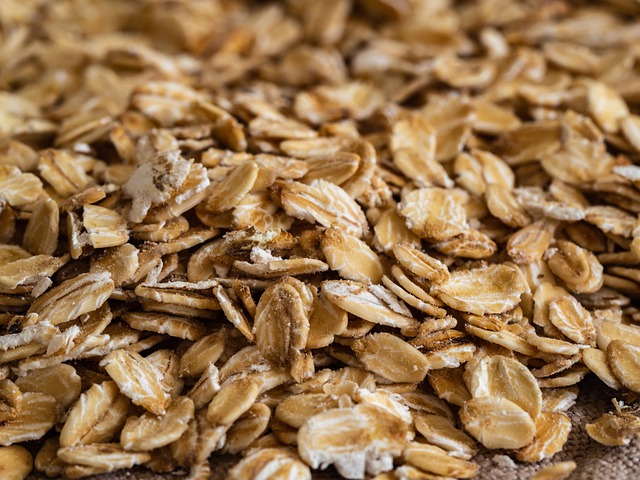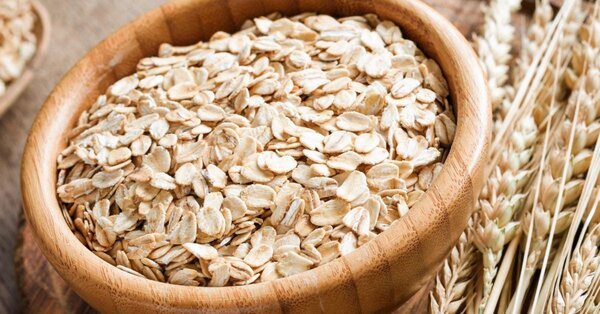Rolled Oats Nutrition: Understanding the Facts About Calories, Protein, Fat, Carbs, and Vitamins
Rolled oats are a popular breakfast choice for many people around the world, known for their hearty texture and ability to keep you full for hours. But beyond their satisfying taste, rolled oats are also packed with important nutrients that can benefit your health in many ways. In this article, we'll take a closer look at the nutritional benefits of rolled oats, including their calorie, protein, fat, carb, and vitamin content.
What Are Rolled Oats?

Before diving into the nutritional benefits of rolled oats, it's important to understand what they are. Rolled oats, also known as old-fashioned oats, are made by steaming and flattening oat groats, which are the whole, unbroken grains of the oat plant. This process makes the oats easier to cook and gives them their characteristic flat shape.
Rolled Oats Nutrition Facts - What Nutrition Do Rolled Oats Provide
Calories in Rolled Oats
One of the most important factors to consider when it comes to rolled oats nutrition is their calorie content. Rolled oats are a relatively low-calorie food, with one cup of cooked oats containing just 166 calories. This makes them a great choice for people who are trying to lose weight or maintain a healthy weight.
Protein in Rolled Oats
Another important nutrient in rolled oats is protein. One cup of cooked oats contains around 6 grams of protein, which is a significant amount considering the low calorie count. Protein is essential for building and repairing muscle tissue, as well as maintaining healthy hair, skin, and nails.
Fat in Rolled Oats
Rolled oats are also relatively low in fat, with one cup of cooked oats containing just 3.5 grams of fat. The majority of the fat in rolled oats is unsaturated, which is the healthier type of fat that can help lower cholesterol levels and reduce the risk of heart disease.
Carbs in Rolled Oats
While rolled oats are low in calories and fat, they are relatively high in carbohydrates. One cup of cooked oats contains around 28 grams of carbs, which is a significant amount. However, the majority of these carbs are complex carbohydrates, which are a slow-release source of energy that can help keep you full and satisfied for longer.
Fiber in Rolled Oats

One of the key benefits of rolled oats nutrition is their high fiber content. One cup of cooked oats contains around 4 grams of fiber, which is 16% of the daily recommended intake. Fiber is important for maintaining healthy digestion, reducing the risk of constipation, and promoting feelings of fullness and satiety.
Do Rolled Oats Have Vitamins and Minerals
In addition to their macronutrient content, rolled oats are also a good source of several important vitamins and minerals. These include:
Thiamin (Vitamin B1): essential for energy metabolism and nerve function.
Riboflavin (Vitamin B2): important for energy metabolism and healthy skin.
Niacin (Vitamin B3): helps lower cholesterol levels and supports healthy skin.
Vitamin E: a powerful antioxidant that helps protect cells from damage.
Iron: essential for healthy blood cells and oxygen transport.
Magnesium: important for healthy bone and muscle function.
Phosphorus: essential for healthy bones and teeth.
How Do You Incorporate Rolled Oats In Your Diet
There are many different ways to incorporate rolled oats into your diet, from traditional oatmeal breakfasts to creative baked goods and savory dishes. Some ideas include:
Oatmeal: Cook rolled oats with water or milk and top with your favourite toppings, such as fruits, nuts, or seeds.
Granola: Make your own granola by mixing rolled oats with nuts, seeds, and dried fruit, and baking in the oven.
Baked Goods: Use rolled oats in muffins, pancakes, or cookies for added fiber and nutrition.
Savory Dishes: Use rolled oats as a binder in veggie burgers or meatloaf, or sprinkle on top of casseroles for added crunch.
Are Rolled Oats Good For You
Rolled oats are a versatile and nutritious food that can provide a variety of health benefits. They are low in calories and fat, but high in protein, fiber, and important vitamins and minerals. Whether you enjoy them as a classic bowl of oatmeal or get creative with baked goods and savory dishes, incorporating rolled oats into your diet is a great way to support overall health and wellness.